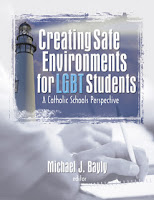There is no doubt that in the Middle Ages and subsequently up to twenty years ago, there was in the Church a centralization of powers. . . . A far greater failure of the Church’s mission can be identified much closer to home. Western Europe is increasingly post-Christian. With the Enlightenment and the scientific revolution, [Roman] Catholicism increasingly lost the intellectual class. With the industrial revolution, it increasingly lost the workers. With the rise of democracy and the emergence of the modern secular state, it lost any privileged political position and has become increasingly irrelevant to the middle class. The seeds of this failure were laid in the increasingly sect-like characteristics of the [Roman] Catholic Church itself. Its hostility to the changes taking place in the modern world presented the Western world with too stark an option, of either [Roman] Catholic Christianity or modernity. A failure to recognize the more positive aspects of modernity and to embrace these has left the Church increasingly out in the cold. . . . For John Paul’s new evangelization to work, the Church first must get its internal house in order. As long as Europeans – or anyone else – perceive the Church as an oppressor of women, gays, and dissidents, it is unlikely to generate much sympathetic attention.
See also the previous Wild Reed posts:
Truth About "Spirit of Vatican II" Finally Revealed!
Reading the Documents of Vatican II (Part 1)
Reading the Documents of Vatican II (Part 2)
Reading the Documents of Vatican II (Part 3)
A Church That Can and Cannot Change
Understanding the Old Catholic Church (Part 1)
Understanding the Old Catholic Church (Part 2)
Understanding the Old Catholic Church (Part 3)






















No comments:
Post a Comment